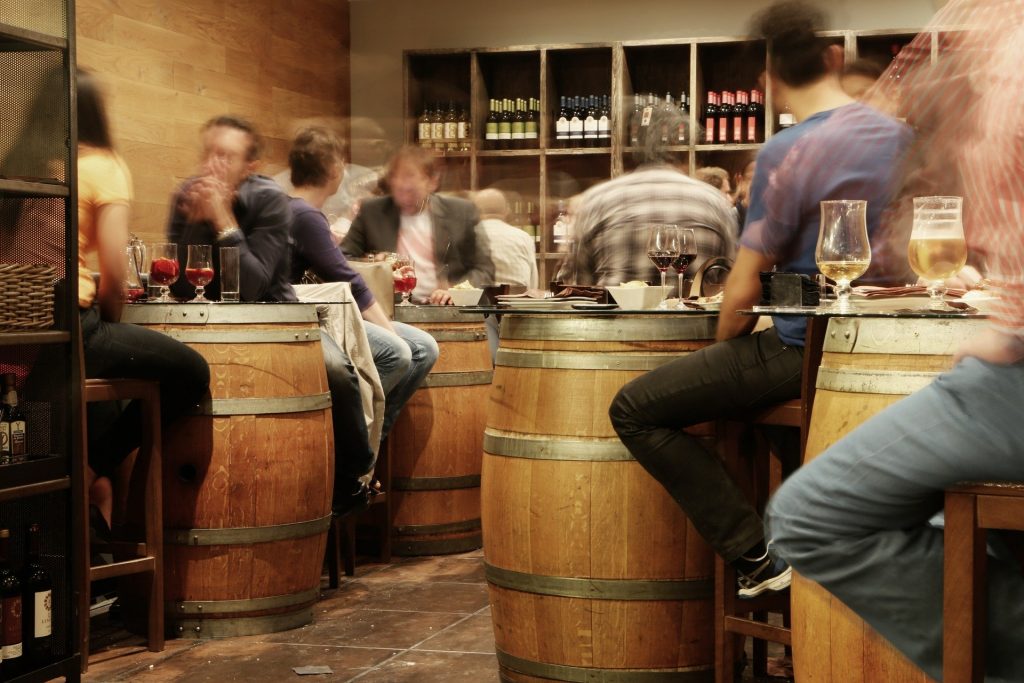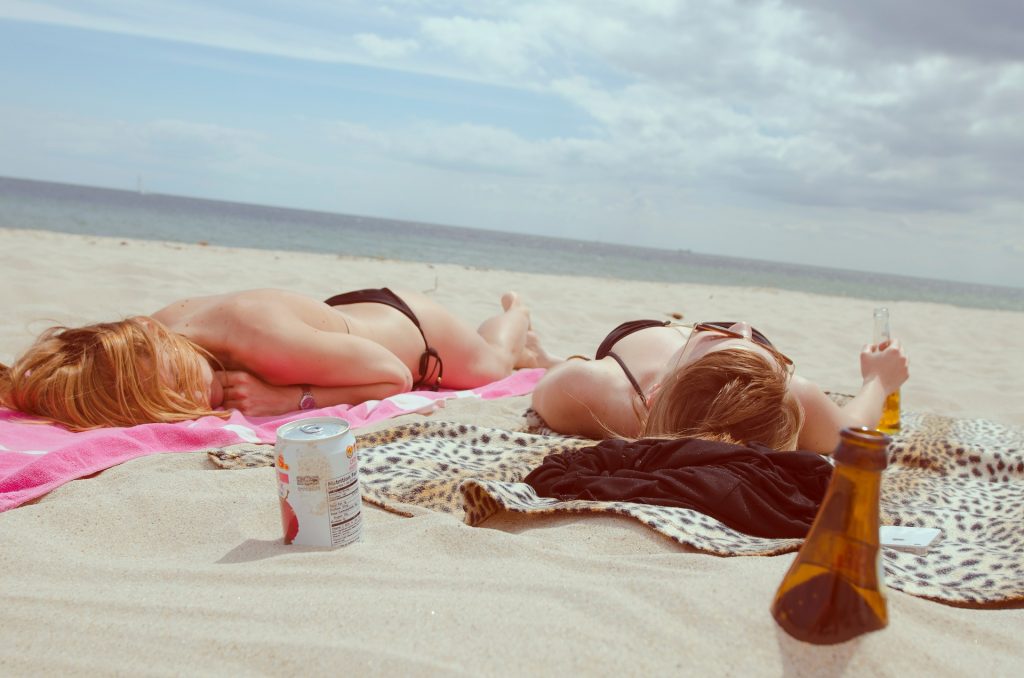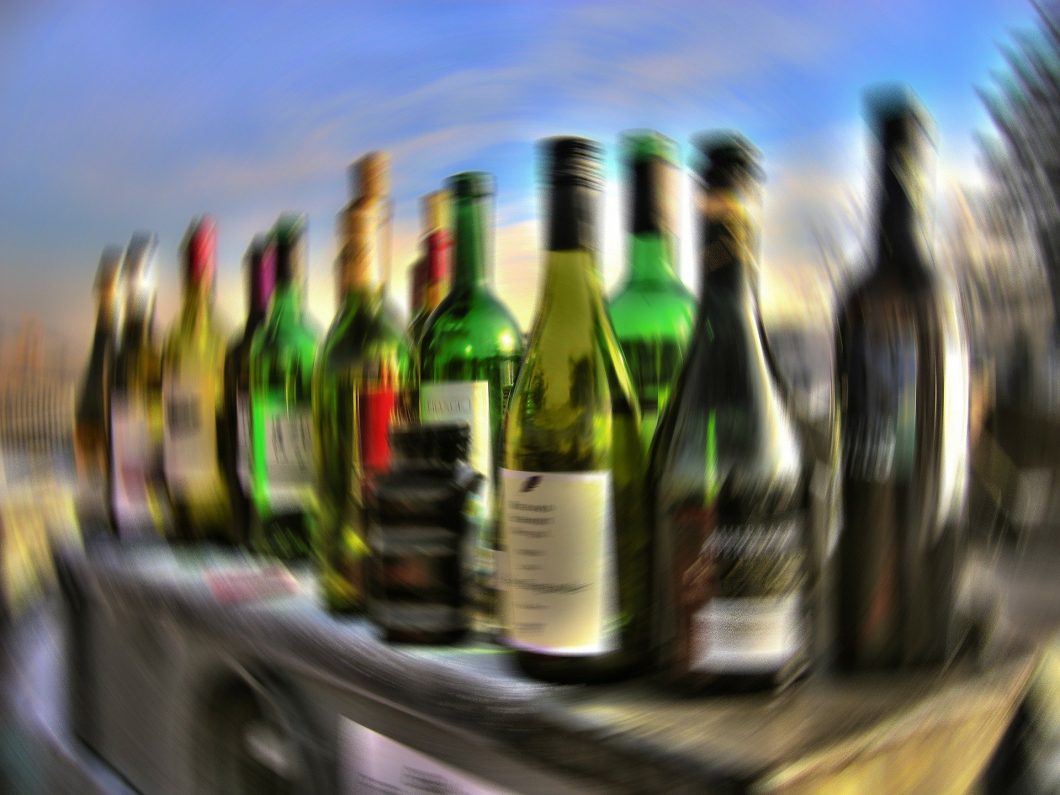
Let's Get Your Power Back. Contact Me, Your First Session is Offered.
Does alcohol actually make anxiety worse?
I´m writing this because i´m often surprised at how few articles there are online about anxiety and alcohol. From my own personal experience there is a huge link between the two and this is something that should be being discussed more. Society is soaked in alcohol. We use it at just about every opportunity, from celebrating and making a toast at a wedding, to commiserating the loss of a love one. But despite being aware of it´s many problems, I preferred to keep alcohol on it´s pedestal and to bow down to it´s supposed god like radiance.
We are taught by our friends, family and popular culture that alcohol will help us with our problems and make everything more fun. If you are trying to change your mood after work, take a drink, if you´re going on a date and need to loosen up, take a couple of drinks. Undoubtedly drinking with friends and family can seem to be great. Booze can help you to relax into social events, jokes become funnier, conversation easier and perhaps most important of all, everyone gets on the same level and are able to connect. But are we really enjoying ourselves as much as we think, or is it an illusion?
You may argue what´s wrong with an illusion that gives me happiness and good times with my friends. Surely that´s a good thing? Perhaps it´s healthy to drink sometimes, especially if you’ve been stressed out from work, or dealing with some difficult emotions. This is a good argument and may be true for many social drinkers, however in my experience, as someone who has had to deal with anxiety all my life, alcohol is a slippery slope that tends to exacerbate the very problems that we are trying to manage. Overtime I noticed how I was drinking more quickly to try and keep the anxiety at bay.
One morning, I remember waking up at home with absolutely no idea how I got there, or what had happened the night before. I had this horrible feeling that i´d done something stupid and the anxiety began to grow as I lay there squirming in my bed, trying to remember what it was. The hangover was making everything twice as bad, so I decided to get up and try and throw something together for breakfast. Greasy food was my go-to with a hangover. Ten minutes later and i´m sat there on the balcony with a bacon and egg sandwich in hand, the anxiety was raging but perhaps the sandwich would make it all go away. Mistake… I manage to eat it, but ten minute later i´m rushing to the toilet to throw it back up. I give up on the day and decide to go back to bed to try and sleep it off. I never did end up piecing together what happened that night.
Acceptance of anxiety works better than pushing it away with booze.
So why not just enjoy the illusion? Well, as you can see, for me the illusion was often being unveiled and it was becoming more and more evident that something had to change. Luckily I came across a profound cocept that had a huge impact on me and that was ´acceptance´. I cannot stress enough the importance of this word in overcoming anxiety. It is fundamental to getting your head above water and until I came across the concept one day in John Kabatt Zinn´s classic ´Full Catastrophe Living´, my life was a full on ´catastrophe´ and anxiety was the one calling the shots.
Without acceptance I would still be stuck in the anxiety trap and wouldn´t have been able to get anywhere near where I am today. Now here´s the thing, it´s not a popular message, but from my own personal experiences, acceptance of anxiety is hard to achieve if you are regularly drinking alcohol. As Jon says “unless we accept things as they are, we will try to force things to be as they are not and that can create an enormous amount of difficulty.”

What I found out when I quit alcohol for a year.
When I decided to quit alcohol for a year I noticed during the first month how I craved it in social settings. As a teenager booze was a savior as i´d always felt awkward and shy, but after my first sip, I knew I had found something to deal with that. Suddenly I could be loud and funny (at least I thought so). It didn´t take long for me to build up a dependence on booze to socialize and this persisted for more than twenty years.
One evening, not long after quitting I was sat in a bar with friends and was trying my best to be relaxed and fun, but I just couldn’t get into the right mood. I knew that a beer would instantly change this, but i´d made the commitment to not drink so I wasn´t going to do that. I sat there tapping my foot on the floor, feeling agitated and annoyed when I suddenly remembered to try and accept these feelings for what they were and to refocus on the present, it wasn´t easy but it made the evening pass more pleasantly. I learnt that I was actually able to relax into social situations, if I just allowed the uncomfortable feelings to be there without fighting with them. From that night it slowly became easier to socialize without alcohol.
Could you also get some relief from anxiety by not drinking (or at least cutting down)? In my experience yes. This is because alcohol is the opposite of acceptance. Instead of learning to deal with difficult emotions when they come up, when we drink we push them aside, we are in affect saying to them that they are not welcome, that we are unwilling to feel them. Unfortunately, as you may already be aware, when we are unwilling to experience difficult emotions, we end up getting more of them.
I learnt how to stay in the sweet spot and that meant I was drinking more and more. At no point was it out of control, but I didn´t like how it was making me feel after the buzz wore off and I noticed how alcohol was not actually making me feel as happy as I thought, in fact sometimes just the opposite. Just this morning I walked into the communal area of my workplace to hear someone complaining about their lack of control with alcohol and how they are unable to just have just one drink. Often we talk like this as if we are surprised, but we shouldn´t be.
As you know, alcohol is an addictive drug that hijacks your will power and over time often leads to people drinking more. If you have anxiety, then this effect is magnified. We tend to use alcohol to manage difficult feelings, but when the buzz has worn off the anxiety comes back, often worse than it was before. This can lead to a vicious cycle of drinking more to try and stay one step ahead of our negative feelings. So what is actually going on in the brain when we drink?
What does alcohol actually do to the brain?
David Disalvo writes in his article: ´What alcohol really does to your brain´ that “Alcohol directly affects brain chemistry by altering levels of neurotransmitters – the chemical messengers that transmit the signals throughout the body that control thought processes, behavior and emotion”. There are different types of neurotransmitters, excitatory (fun) and inhibitory (fun killer). One example of an excitatory neurotransmitter is glutamate, which normally increases activity in the brain and leads to more energy.
Alcohol suppresses glutamate, which results in the brain slowing down. An example of an inhibitory neurotransmitter is GABA, which reduces your energy levels and also slows things down. The combined effect of the suppression of glutamate and higher levels of GABA is the pleasurable feeling of drinking alcohol, a reduction in anxiety and relaxation.

This all sounds great, but do we create problems for ourselves when we artificially alter our brain chemistry. David Nutt, professor of neuropsychopharmacology at Imperial College, London seems to think so. In the Gauradian Newspaper he states that “The body registers this new imbalance in brain chemicals and attempts to put things right. It is a little like when you eat a lot of sweets and your body goes into insulin-producing overdrive to get the blood sugar levels down to normal”.
He goes on to argue that “When you are drunk, your body goes on a mission to bring Gaba levels down to normal and turn glutamate back up. When you stop drinking, therefore, you end up with unnaturally low Gaba function and a spike in glutamate – a situation that leads to anxiety.” This it seems is why we often feel anxiety with hangovers, or even a short time after finishing drinking. In addition to this alcohol also causes a rise in the fight or flight hormone noradrenaline “Severe anxiety” says Nutt, “can be considered a surge of noradrenaline in the brain.”
As we can already see, there is a lot going on in the brain when we drink alcohol which has a direct effect on our well-being and levels of anxiety. This effect can last for days after drinking and can even help us to get stuck in rumination. But there is one more important neurotransmitter affected by alcohol that we are yet to discuss and that is dopamine. Alcohol increases the direct release of dopamine in the brains reward centre. This reward centre is affected by all pleasurable activities, such as eating, socialsing, playing sports and drinking alcohol. But by artificially raising levels of dopamine through drinking, we trick our brains into thinking we are happy, so we end up drinking more to keep that feeling going.
David Dasalvo, author of the previously mentioned article, argues “The effect is that you keep drinking to get more dopamine release, but at the same time you’re altering other brain chemicals that are enhancing feelings of depression. Over time the dopamine affect diminishes and the person must consume more and more alcohol to get the good feeling.” Sadly, for many this can lead to alcohol addiction. Even moderate drinkers would be wise to exercise caution, particularly if you have issues around anxiety.
What can you do?
Is alcohol getting in the way of you learning to have a better relationship with anxiety? It certainly was for me. These days I routinely take little holidays from alcohol, with my latest being a two and a half month break. I find that this stops me from using alcohol in a negative way and now I am better able to have a couple of drinks, without getting into difficulties. You need to work out what is best for you and to do that, it is best to work with a therapist or coach to discuss the issue and work out what the best approach is going to be (this is especially true if you suspect you may have a serious drinking problem). For some it may be best to try and live completely sober, whereas for others moderation may work. Whatever you decide, taking a look at your drinking and taking some time out from it, will surely help you to manage issues regarding anxiety disorders in a much better way.
The hardest part is starting and the first week is difficult, but over time it definitely gets better and amazingly, you learn that it is possible to socialize without alcohol. Why not make a positive change today? If you suspect you have a serious problem with alcohol you should seek professional help, but if you feel your drinking is under control, but could be contributing to your anxiety, why not try taking a month off and seeing how you feel? Feel free to contact me on here if you would like some coaching with this. I offer a free 30 minute consul
#alcohol #booze #anxiety #ocd #change #anxietycoach #mentalhealth #GAD #acceptance #dryjanuary

